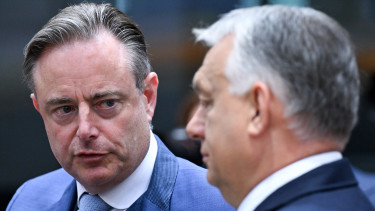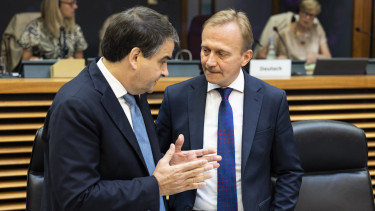Hungary unhappy with EU budget proposal

The revised, compromise-seeking proposal for the 2021-2027 budget period presented by European Council President Charles Michel last Friday contained major concessions to Hungary: an extra EUR 600 mn for cohesion funds, a less steep increase in the required co-payments from member states, and a revised voting system for rule-of-law sanctions. While Michel’s plan includes a proposal to link EU funding to rule-of-law criteria, the process outlined for cutting funds ("the Commission will propose appropriate and proportionate measures that will have to be approved by the Council by qualified majority") would make it difficult for the tool to be used, observers note.
Hungary is now seen as less likely to veto the budget proposal as it allows for moving money around between different cohesion funds towards poorer regions in Central and Eastern Europe, in addition to changing rule-of-law voting procedures. Nevertheless, Magyar Nemzet reported that
representatives of the Hungarian government were not enthusiastic when receiving the latest Multiannual Financial Framework (MFF) proposal from the European Council President.
German Social Democrat Finance Minister and Vice Chancellor Olaf Scholz, visiting Brussels ahead of Thursday's EU summit, said the plans to tie the disbursement of funds to respect the rule of law fall short of earlier proposals. This indicates that Scholz would welcome a so-called reversed qualified majority vote procedure, which could be interpreted as a cut to cohesion funds as he two voting processes have major differences. This could raise concerns in Hungary and Poland, two member states that have raised rule of law concerns.
In the qualified majority system, whenever the European Commission finds problems with compliance with the new rule of law guidelines and proposes Article 7 sanctions, the European Council must pass the proposal by 55% of the votes representing a least 65% of the EU's population. This can be blocked relatively easily by a minority coalition such as Hungary and Poland.
In contrast, a reversed qualified majority vote would mean that sanctions regarding EU funding proposed by the Commission take effect by default unless there is a qualified majority (55% of member states and 65% of population) to overrule the sanctions. This means that the mere passive stance of bigger member states would be sufficient for sanctions to take effect, requiring no active judgment on the rule of law in other member states.
As a result, the reversed qualified majority could pose much bigger dangers to Hungary and Poland.
As Magyar Nemzet also recalls in the report, Polish Prime Minister Mateusz Morawiecki recently said in an interview that if richer countries in the north aided poorer ones in the south financially, everyone would profit in the end. Morawiecki cited an earlier Polish study, which found that convergence funds spent on Visegrád countries between 2007 and 2013 brought EUR 1.5 per every euro spent to Germany, EUR 1.45 to the Netherlands and EUR 3.31 to Austria, as a large part of the orders using the grants landed at Western companies.
This in theory could prompt Germany to contribute more to the 2021-2027 MFF, but with the 1.11% of GNI contribution proposed by the Commission (as opposed to Michel's 1.074% proposal), Germany would by a net contributor of EUR 15 bn to the EU budget in 2020 and EUR 33 bn in 2027, more than doubling its payments even hough it is already the largest net contributor.
















